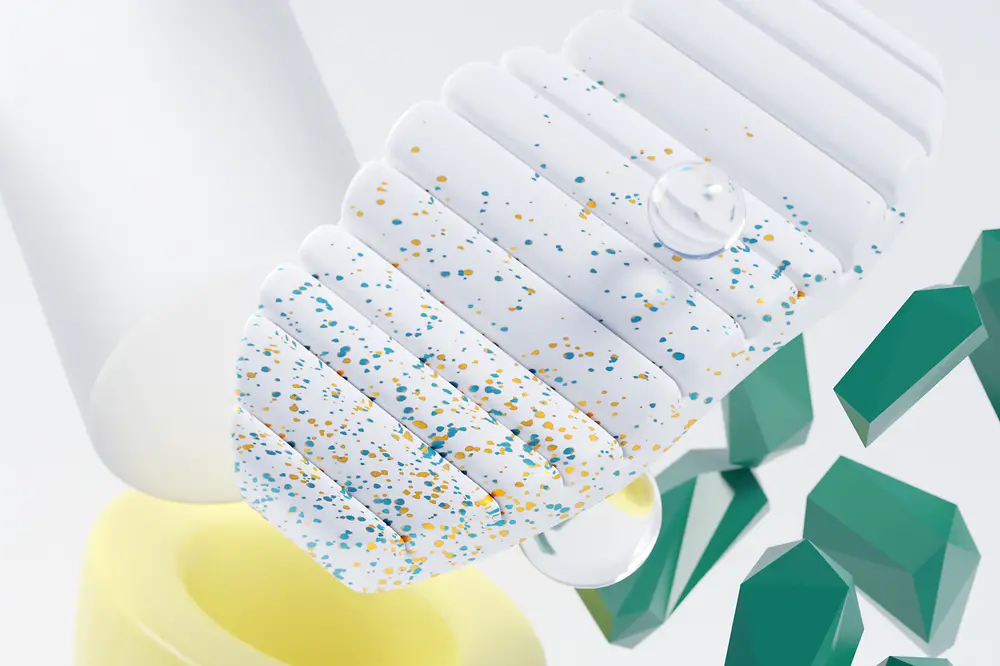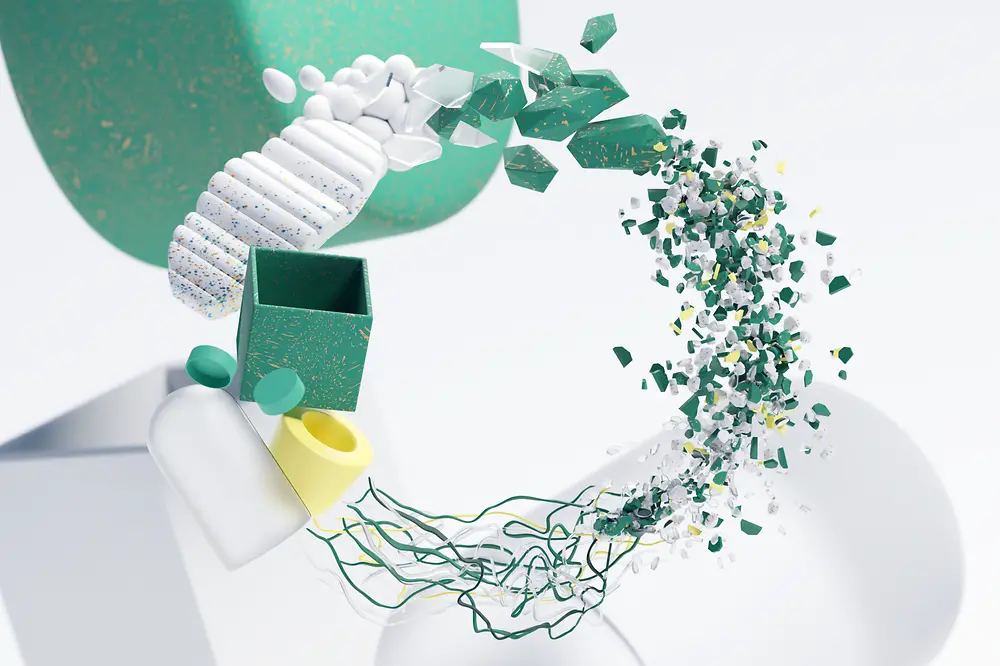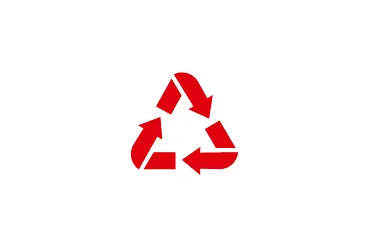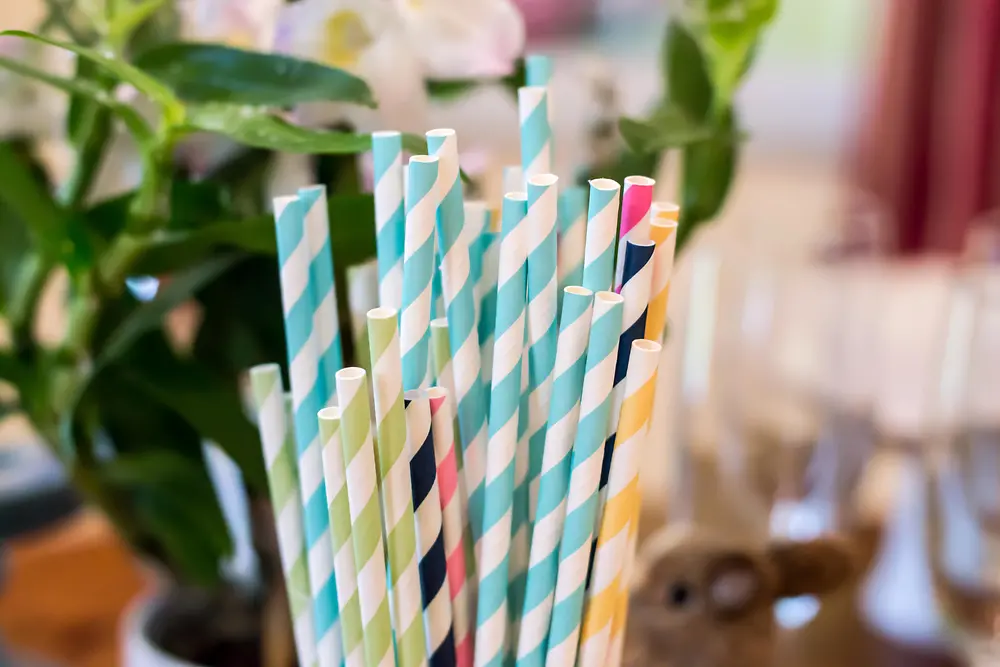Our adhesives make it possible for paper straws to withstand immersion in liquid for a longer period of time.
Circularity goes far beyond consumer plastic: It is about completely transforming the way we think about resources, and turning waste into a valuable raw material. Single-use plastic straws, for example, are gaining a lot of attention and are the focus of increasingly strict legislation. Our adhesives are enabling the switch to paper straws as a more sustainable alternative. Industry standard paper straws are made of three layers of paper with a thin layer of our adhesive between each layer. Our technology makes it possible for paper straws to withstand immersion in liquid for a longer period of time, and tests have confirmed that the paper straw packaging is biodegradable, which contributes to circularity by eliminating waste.





















